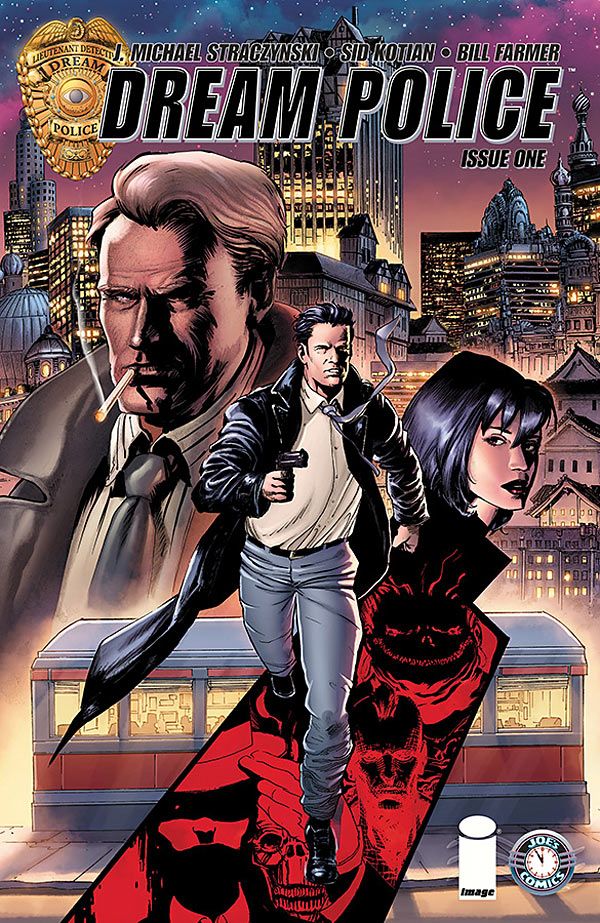Whether or not you like J. Michael Straczynski and Sid Kotian's "Dream Police" #1 will depend almost entirely on how you feel about the premise. Its protagonists are depressingly generic pastiches of cop stereotypes, trading uninspired dialogue and blandly walking the reader through the mechanics of the job. The world they're in, though, is an imaginative, extensive playground with a shifting sense of reality straight from "The Matrix."
There are plenty of pieces of this world to love -- its quirky operating procedures, its loose rules, the Nightmares -- but with so many interesting things at hand, one has to wonder at the lens that J. Michael Straczynski has chosen. These protagonists never feel like the most interesting or best equipped people to take you through the Dreamscape, especially when there's so much around them that's more interesting. As a result, the critical question at hand is whether the world is worth dealing with the guides.
The world has a lot to offer. The Dreamscape is wonderfully crafted, and Issue #1 gives the reader a peek into so many of its facets. Small architects build the setting for dreams, shapeshifters play the characters, and Nightmares step in when things get too hairy. (The Nightmares alone would make a great series on their own.) I always enjoy watching a creative team's imagination at play, and Straczynski, Kotian and Farmer are doing just that.
Kotian's line work delivers, but it's the character designs that are really something. They're varied and unique, all while drawing on different pop culture influences. The shapeshifters look almost like computer-generated figures, with some shimmering color work by Farmer, while the Nightmares wear top hats and "Phantom of the Opera" masks over gaping black holes where their heads should be. I enjoyed the way this world looks.
All that aside, the fact remains that Lieutenant Detective Joe Thursday and his partner Frank Stafford are dull. Joe's narration might as well be an authorial info dump for all the extra panache or human interest it provides. He opens with "When something goes wrong, I go to work. I carry a badge" and sets scenes with phrases like "Normally this is a pretty quiet part of town. Emphasis on the word normally." These aren't badly written at all, and they do establish a certain mood, but there's no flavor or character to this narration. Admittedly, Straczynski could be going somewhere with this. Maybe their cliche-amalgam personalities will become a plot point as the story explores their origins and their role in the Dreamscape. That could be interesting later on, but it isn't engaging in Issue #1.
In addition, it diminishes the surprise twist at the end. What could have been a shocking change plays out as more of an eyebrow-raising moment of interest. Having built almost no attachment to Joe, or any sense of Frank as a character, I don't register the switch as anything meaningful.
If "Dream Police" puts as much imagination into its protagonists as it has into its world, it'll be a winner. For now, though, it's got a few kinks to work out.

